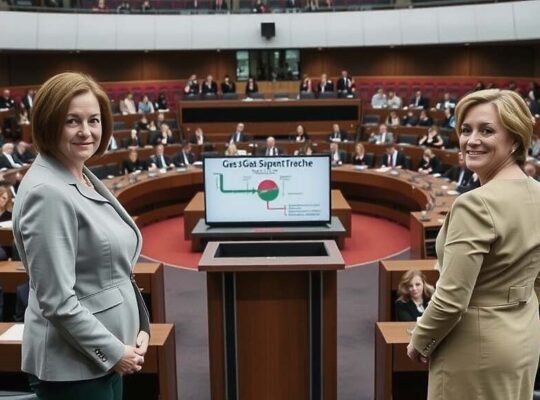A recent survey indicates a diverging economic landscape for German startups, with a significant number reporting improvement alongside a growing contingent facing increasing challenges. Published today by the IT industry association Bitkom, the study reveals that 37 percent of startups experienced an improved economic situation over the past two years, an increase from 31 percent in the previous year.
However, a substantial 31 percent reported a deterioration in their circumstances, up from 24 percent a year ago. Consequently, the proportion of startups maintaining a stable position has decreased, falling from 41 percent to 28 percent.
While individual company performance remains marginally positive on average, overall sentiment regarding the startup ecosystem is more cautious. Only 21 percent of respondents reported an improvement in the broader economic situation for startups – down slightly from 23 percent in 2024. Conversely, 47 percent perceive a worsening, compared to 45 percent last year.
Concerns about future viability are also rising, with more than one in seven startups (15 percent) fearing insolvency within the next twelve months – up from eleven percent a year ago.
Startups identified bureaucracy (63 percent), sales and customer acquisition (61 percent) and financing and capital raising (52 percent) as their foremost obstacles. Access to public contracts (39 percent) and scaling their business model (39 percent) also present significant hurdles.
Regulatory uncertainty, particularly surrounding areas like data protection and the AI Act (34 percent), was highlighted as a growing concern. Other challenges include product development (21 percent), skilled labor shortages (19 percent), technological difficulties (16 percent), a lack of demand (13 percent) and competitive pressures (11 percent).
The findings are based on an online survey of 152 tech startups across Germany, conducted between the 12th and 21st calendar weeks of the year.












